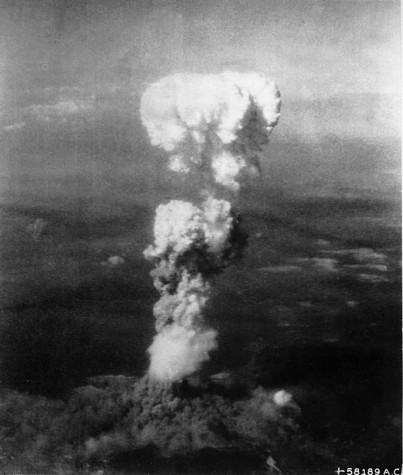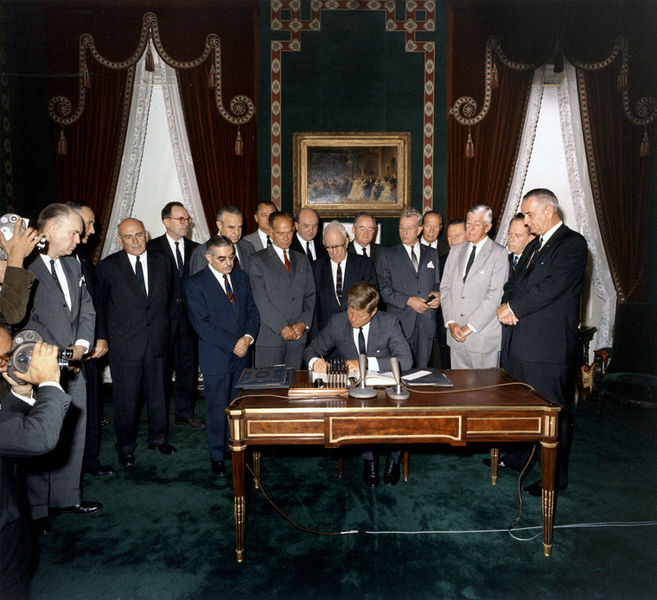GloboCop
“Welcome to the third Gulf War, everyone.” A good friend of mine delivered this weighted complaint after the initial US bombings against ISIS took place. His remark was paired with a look that demonstrated just how completely beside himself he was at the news. I didn’t say anything in response but instead found my focus drifting to the idea of perspective and experience. I considered how my friend has grown up and developed in a world of American activity in the Middle East. The truth of the matter is that the United States has been in a steady period of intervention for the past half-century, and the seemingly unending need for US leadership and action in international affairs has taken a toll on the country’s youth.
This, included with the constant news of military over-spending and unilateral aggression has bred a wave of Americans who hold nothing but anger and shame towards the nation’s military endeavors. The origins of conflict are often forgotten, distorted, or misunderstood once pictures of casualties flash across TV’s in living rooms, stories of disturbed veterans violently acting out against the cause are broadcasted, or footage of weeping mothers overseas holding their deceased child after an American airstrike plays online. I am in absolutely no position to comment on the horrors of war and the consequences of conflict, but I can present the ends to which we strive for, and provide arguments for either opinion on whether or not the means are a justifiable necessity.
We are given opinions from older individuals who have experienced decade after decade of US military involvement in world affairs and are evidently tired of watching sons and daughters be shipped off to fight the battles of our politicians. Originating from the end of ignorance regarding the realities of battle due to extensive press in combat zones and television broadcasts of war, anti-conflict sentiments have grown and rooted themselves in the hearts of passionate, diplomatically enthused individuals across the nation. It is anything but negative to have a populace geared towards the practice of peaceful solutions in the face of incoming tension. Refusing to endanger the lives of your fellow citizen with arguably hasty or uncalled for responses in force is the right move for humanity as a species and the nation as a community.
That being said, a proposal for complete avoidance of international problems needs to be weighed against the consequences of dormancy. Without US involvement, the Korean peninsula would be under the control of the horrid North Koreans, thousands more in Somalia would have starved without the dismantling of the local warlord’s operation, the majority of the world’s oil fields would have fallen into the hands of Saddam Hussein, and the Western front of the Allied Powers in World War II would have fallen. The hypothetical history of a neutral America would be riddled with bullying groups dominating and destroying poorly-protected individuals without the prevention or justice from a capable nation in response. On the other hand, US action has led to the creation of al-Qaeda, the destabilization of Iraq, and of course the loss of American life. So what matters more: the immediate protection of the country’s citizens at the risk of endangering others abroad or the immediate protection of others overseas at the risk of internal loss? Is it our responsibility to protect those in need regardless of borders? Does America as the sole political superpower have an obligation to step into the global arena?

Obviously, the polar opposite of the refusal to engage is the acceptance and eagerness to utilize strength as a quick fix. It’s recognized almost holistically as the morally unsound, yet logically evident solution to international tensions. Carpet bombing will get rid of the problem directly but the process is extremely dangerous to the civilians in the crossfire. On a larger scale, if the United States were to initiate open aggression against North Korea, our uneasy-partnership with the territorial Chinese would collapse. There is merit in the absolute defeat of an enemy by lethal means, seeing as there will be no further conflicts in the future. Yet, said practice leads the US to follow in the footsteps of the very same aggressors that we’ve worked to overthrow in the past.
Like all great debates, the correct choice is somewhere in between either side. The movement towards an answer in the middle of these points is essential if the United States plans on maintaining a consistent procedure of diplomacy until necessary action is called for.


















Jenny Beth Maynard • Mar 16, 2015 at 8:37 am
Staying in the middle will just lead to more middle-ness, though… Good article, fancy as always!!
Ryan Henley • Mar 16, 2015 at 8:14 am
Jake, your writing is as indulging as ever.